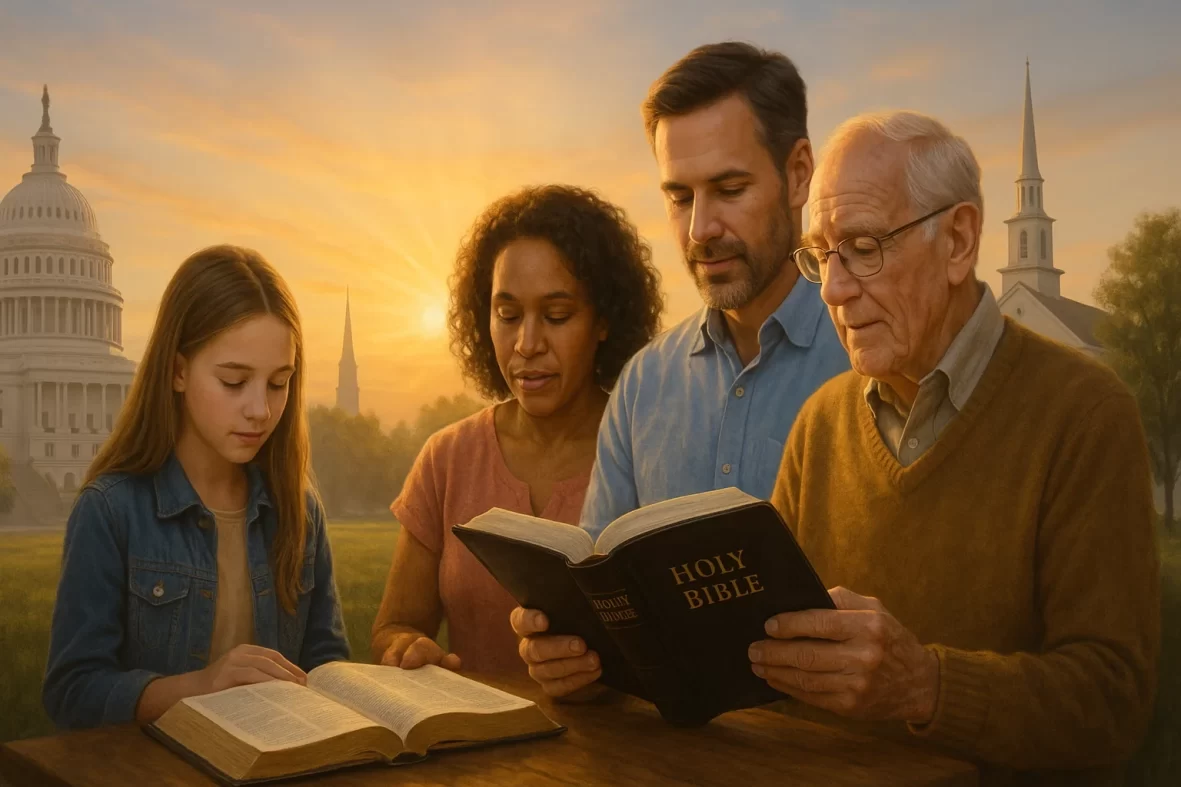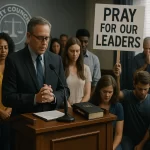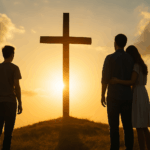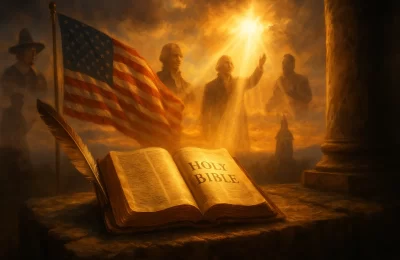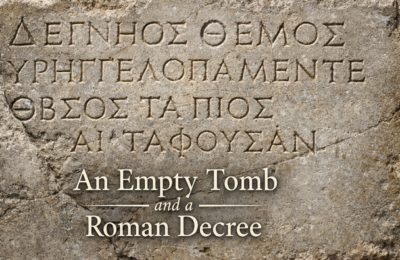Part 12 of Civic Theology: How the Bible Shaped America’s Founding and Freedom
From our first steps as a nation, Americans have turned to Scripture for guidance in public life. We began this series by recalling John Winthrop’s city-on-a-hill sermon and the Puritans’ covenantal vision – a conviction that God had made a solemn covenant with their people to be a light to the world. Over the course of this series we have traced that covenantal thread through colonial charters, the Revolution, the founding documents, and the movements for moral reform. We have seen how the Bible shaped our political conscience – inspiring everything from Franklin’s almanacs and the abolitionist press to Lincoln’s addresses and King’s marches – and how generations of Americans have found in God’s Word both encouragement and critique. In this final installment, we step back and see the sweep of Scripture’s influence on America’s public life, and we ask what it means to carry that heritage forward today.
Scripture’s impact on America was far from accidental. As Ronald Reagan proclaimed in 1983, of all the forces shaping our national character “none…may be said to be more fundamental and enduring than the Bible.” . It was deep religious beliefs – rooted in the Old and New Testaments – that inspired the early settlers with the “strength, character [and] convictions” to endure hardship and forge a common purpose . Those same Biblical convictions formed the basis for the Founders’ belief in inalienable rights. Reagan noted that our Declaration’s “rights … which [the Framers] found implicit in the Bible’s teachings of the inherent worth and dignity of each individual” . In short, the Scriptures provided the moral vocabulary for colonial self-government and for the revolutionary ideal that “all men are created equal.” Whether Puritan preacher or educated patriot, our founders assumed a biblical moral order underlying law and society.
General George Washington exemplified this conviction. In his 1796 Farewell Address, the first president warned that “of all the dispositions and habits which lead to political prosperity, religion and morality are indispensable supports” . He pleaded with Americans to “respect and to cherish” these “firmest props of the duties of men and citizens” . In other words, without a religious people committed to virtue, even the best constitution is fragile. John Adams likewise observed that our Constitution was framed only “for a moral and religious people” and would be inadequate for any other. (As Adams later quipped, liberty could not flourish “unless virtue and morality and piety be the support of public prosperity” – the very faith of Winthrop’s Puritans.) Madison and Jefferson would guard against an established church, but they never questioned that faith and values are vital to civic health.
From Winthrop’s covenant sermon to the First Inaugural prayer of 1789, Americans have invoked the Bible as a guide. Washington, Jefferson, and others regularly attended church, supported Sunday schools, and assumed a providential role for God in the Republic’s fortunes. Virginia’s Statute for Religious Freedom (1786) and the First Amendment (1791) protected free conscience, yet neither denied Americans the right or need to act on their religious convictions. In fact, Americans took an early lead in global missionary efforts and in using Christian principles to address social ills. As Reagan noted in his Year of the Bible Proclamation, our people established schools, hospitals, and charities, and even abolished slavery – “inspired [by] the Bible’s emphasis on compassion and love for our neighbor” .
The abolitionist era brought this biblical moral conscience to full boil. Prophets like William Lloyd Garrison, Frederick Douglass, and Harriet Beecher Stowe wielded Scripture against slavery. They argued that no part of the nation could claim Christian liberty while Christians owned fellow humans. (Douglass, for example, observed that the Old Testament “taught the freedom of the oppressed” and that slaveholders in the South had corrupted Scripture to defend what the Bible forbade .) By mid-century the very Union’s meaning was being tested on moral grounds – a point Lincoln made implicit in the Gettysburg Address by saying the nation was “conceived in Liberty, and dedicated to the proposition that all men are created equal.” He wrapped that message in biblical cadence: a new birth of freedom under God.
A century later, the Civil Rights movement invoked the same prophetic tradition. Martin Luther King Jr. drew on Amos’s cry that “let justice roll down like waters, and righteousness like an ever-flowing stream,” and insisted that segregation and bigotry violated God’s law. Gospel hymns became anthems of freedom, and pastors pressed the conscience of the nation. Again the Bible provided both the anthem and the arsenal. There were hard lessons – Romans 13 and obedience to authorities, Jesus’ exhortation to turn the other cheek, the apostolic command to pray for kings – all were tested. Yet Americans like Douglass and King interpreted these in a balanced way: faithful to the Scriptures and to justice. The fruits of that biblically informed struggle endure in the rights we hold dear: equal protection, voting rights, and a society more attuned (if still imperfectly) to the Creator’s image in every person.
A Biblical Model of Citizenship
What does Scripture require of us today, as citizens and stewards of freedom? The answer is elegantly simple. Our civic theology says: love God, love neighbor, and love justice. As Jesus summarized the Law: *“‘You shall love the Lord your God with all your heart, soul and mind,’ …and ‘You shall love your neighbor as yourself’” (Matt. 22:37–40). And the Old Testament prophet Micah put it this way: “He has told you, O man, what is good; and what does the Lord require of you but to do justice, to love kindness (mercy), and to walk humbly with your God” (Micah 6:8). In practical terms this means:
- Do justice and love mercy (Micah 6:8): As Micah teaches, righteous action in the world must be driven by compassion. Public policy, laws, and personal conduct should protect the vulnerable (orphans, immigrants, the poor) and promote fairness. Whether that means criminal justice reform, caring for refugees, or simply showing neighborly love in everyday life, Christians are summoned to be agents of God’s justice and mercy in society.
- Love God and love people (Matt. 22:37–40): All our civic engagement flows from devotion to the Lord. The church and state have distinct roles, but every citizen’s first allegiance is to God. We honor God by loving our neighbors – voting our conscience, speaking the truth in love, and serving others. This love transcends partisanship. Christians should champion honest discourse, relief for the poor, and the common good, even amid bitter disagreements.
- Serve one another in love (Gal. 5:13–14): The freedom we enjoy is not freedom to sin but freedom to serve. Galatians reminds us that the entire law is fulfilled by loving our neighbor as ourselves. Responsible citizenship, then, is a calling to selfless service – running for office, volunteering for community needs, or teaching our children to care for others, all motivated by Christ’s love.
- Seek justice and defend the oppressed (Isa. 1:17): Scripture repeatedly calls the godly to act on society’s behalf. Isaiah urges believers: “Learn to do good; seek justice, correct oppression; bring justice to the fatherless, plead the widow’s cause.” In practical terms, this means opposing racism, poverty, and injustice wherever we find them. It may mean reforming laws, supporting charities, or simply being the voice of truth. Both church and citizen bear the responsibility to lift up those crushed by corruption or neglect.
- Pray for leaders and peace (1 Tim. 2:1–2): The New Testament exhorts us to pray “for kings and all who are in high positions, that we may lead a peaceful and quiet life, godly and dignified in every way.” This is a remarkable command in a secular nation. Believers are called to pray for the welfare of the nation and its rulers, regardless of party. We are to seek wisdom for our leaders and unity among our people. Our prayer life is a part of our civic theology – asking God to bind us in peace and preserve the liberties He gave us.
In short, the Christian citizen lives out Micah 6:8 on Monday morning just as on Sunday. We are to embody both compassions of the Gospel and convictions of Scripture in public life. These scriptural imperatives confirm that our civic faith is neither passive nor privatized. A balanced church-state heritage means that government cannot impose religionon the people, but neither should the state forbid the moral teaching of Scripture. The Bible calls the church to be a salt and light (Matt. 5:13–16) in the public square – promoting virtue, championing justice, and offering redemption. When citizens stop being a prophetic conscience, or when the state persecutes the faithful, we violate that balance. Leaders like George Washington warned against either extremes of tyranny or militant secularism. Our founders did not want a theocracy, but neither did they envision a society that silenced religious conviction. As Washington taught: no one should “labor to subvert these great pillars of human happiness” – religion and morality .
Challenges for Today and Tomorrow
As we look ahead, the covenant calls us to fresh vigilance. The world is more interdependent and diverse than ever: globalization, digital media, and religious pluralism present new challenges. In a globalized economy, how do we ensure our policies reflect the Bible’s care for the poor and marginalized? In digital culture, how do we keep the truth alive amid endless noise and moral relativism? When neighbors no longer share faith or even language, how do we tell our story? It is easy to become fearful, indifferent, or cynical. But God is not surprised by these trends. The Gospel excels in every culture, and God’s truth is not bound by geography or tech.
Our civic task is to engage these challenges boldly. We need thoughtful evangelism of ideas. We must translate eternal truths into the local context of classrooms, legislatures, and social media. For instance, in a relativistic culture that says “there is no absolute truth,” Christians must gently witness to God’s unchanging Word. In an age of global migration and pluralism, we uphold religious liberty not only for ourselves but as a model for others. Let us remember Tocqueville’s insight (1830s) that Americans were stronger for combining piety with democracy – that “religion in America…is the foremost political institution of the country,” binding hearts together even as we hold diverse views .
Despite these headwinds, we have reasons for confidence. Many leaders and citizens still treasure the heritage of faith in America. Polls show broad support for God in public life. Social entrepreneurs daily embody compassion: feeding the hungry, defending the unborn, fostering adoption, and mentoring youth. The church continues to plant new congregations, and a new generation is asking spiritual questions. Every morning we awaken to free speech and free elections – freedoms rare in history, indeed a sign of divine blessing.
Yet freedom always needs renewal. Liberty without godliness decays, as Washington warned. Moral relativism will fray the civic fabric if we do not stand for righteousness. As the nation wrestles with issues like economic upheaval, ideological echo chambers, and cultural shift, the Church must be at prayer and on mission. We must teach our children history honestly, celebrate the good we’ve inherited, and accept the task of reforming what’s broken.
A Colson Fellows Call to Action
To make this practical, we borrow the Colson Fellows framework of four civic questions, applying them as a rallying charge for our generation:
- What good can we celebrate, protect, promote, and preserve? Let us affirm the blessings: our constitutional freedoms (speech, religion, assembly), the rule of law, and the tradition of free enterprise with compassion. We honor the good God has done through America: the decline of poverty through charity and innovation, religious liberty enshrined in the First Amendment, the civil rights won after centuries of struggle, and the very courage to correct our own mistakes. We should protect the legal right to openly live our faith (in schools, courts, and communities), and preserve values like the sanctity of life and marriage as well as local control of education. We can promote the biblical ideals of stewardship and family by forming strong neighborhoods, supporting parental rights, and modeling generosity. Celebrating this heritage in our civic rituals – flag ceremonies with prayer, lawmakers beginning sessions with a moment of silence for God, schools teaching civics grounded in moral virtue – reminds us where we came from and what we have.
- What is missing that we can contribute? Here our civic faith becomes creative. What voices are not being heard? Often it is the churchy ideas: compassion for the poor, forgiveness, a biblical view of marriage, gratitude to God. It is the marginalized: the unborn, the addicted, the discouraged, the immigrant yearning for a home. It is participation: millions of Christians are uninvolved in politics and media. We can contribute by speaking up – writing letters to editors with a biblical perspective, running for office or volunteering for campaigns grounded in truth, teaching ethics in schools, or simply showing up to community meetings. Many of us have skills and resources that civic leaders lack; we can serve on boards of charities or as translators for immigrants, we can mentor at-risk youth or offer financial counsel in churches. In short, we can re-fill the gap left by our absence: from offering to pray for the city council to providing meals for the hungry, each action is part of the mosaic of covenantal citizenship.
- What evil can we stop? Scripture’s voice is loudest in condemning evil and oppression. We must be vigilant guardians of justice. At minimum, this means actively opposing corruption, discrimination, trafficking, and injustice in all forms. We can stop evil by speaking out against dishonesty in public life (exposing scams or slander), by resisting laws that require participation in evil (such as laws forcing people to lie or violate conscience), and by defending the vulnerable. Christians should also stand against rampant individualism and entitlement, which erode social trust. If there is injustice – systematic poverty, racial profiling, human slavery, persecution of believers abroad – we must use our influence (protests, petitions, or civil disobedience if warranted) to halt it. Ending abortion is a calling born of this spirit: standing with both mother and child, offering hope rather than avoidance. In an age of radical individual freedom, we recall that true freedom is ordered to the good, so a citizen is on guard against every offense to conscience and every betrayal of trust.
- What brokenness can we restore? This is the healing dimension of the Gospel. Brokenness can mean families torn apart, neighborhoods impoverished, ex-prisoners without hope, marriages shattered, and civic decay from apathy. We can restore beauty and wholeness by acts of mercy. That may mean mentoring a troubled teenager, reconciling feuding coworkers, rebuilding a crumbling schoolhouse, or even simply voting for kinder, wiser policies. The Apostle Paul said we are “ambassadors for Christ, as though God were making his appeal through us” (2 Cor. 5:20). In practice, being ambassadors means compassion walks hand-in-hand with correction. We tenderly come alongside those hurt by bad policies (job retraining for the jobless, literacy for the uneducated, counseling for the brokenhearted) while boldly addressing the societal sins that hurt them. Restoration involves both charity (giving a meal to the hungry) and its cause (working to create good jobs). A restored society is one where the orphans are claimed by the church, where the lonely find fellowship, where our civic institutions bear the fruit of grace – honesty, accountability, and respect.
These four questions are not just civic tasks; they are spiritual practices. Celebrating God’s good gifts is worship; contributing missing good is stewardship; stopping evil is prophetic justice; restoring brokenness is redemption in action. As believers we must answer them with prayerful deliberation and bold humility.
Conclusion: Hope for Our Children
Today, we stand like the pilgrims on Plymouth Rock, aware that “the world’s weight is on our shoulders,” as one old hymn put it. We glance at the stars on Old Glory and remember Lincoln’s words that America was “dedicated to the proposition that all men are created equal.” We affirm together the prayer of Psalm 33: “Blessed is the nation whose God is the Lord, the people He has chosen as His heritage.” We look forward to the day when men and women of all stripes gather to sing the same hope-filled anthem: imagine young Americans in a high school auditorium or town square, hands over hearts, eyes lifted as they sing a Bible-rich patriotic hymn (perhaps “America, the Beautiful” or “Battle Hymn of the Republic”). Under the waving flag, the children testify that our heritage is born of Scripture. In their song is the confident echo of Lincoln’s thanksgiving for the Bible as “the best gift God has ever given to man” – the gift that shows us right from wrong and pulls us back from destruction.
Beloved, the covenant continues. The story of America is not closed; its ending depends on us. As the final pastor of a church service exhorts his people to carry Christ out into the world, so now we exhort each other as citizens: Go forth and live Micah 6:8 (do justice, love mercy, walk humbly); obey Matthew 22 (love God and neighbor); serve Galatians 5 (one another in love); pursue Isaiah 1 (seek justice); pray 1 Timothy 2 (for our leaders). Let us affirm both freedom and faith. Let us be the light on the hill that renewed Winthrop’s vision and vindicated Lincoln’s hope. We have come this far by faith in God’s Word and by faith in each other. And so, with gratitude for all God has done and hope for what He will do, we rest in our covenant Lord – confident that Psalm 33:12 and Lincoln’s trust in the Bible are not mere relics of the past, but guideposts for our tomorrow.
References
Adams, J. (1798, Oct. 11). Letter to the Officers of the First Brigade of the Third Division of the Militia of Massachusetts.
De Tocqueville, A. (1835). Democracy in America. Saunders and Otley.
Lincoln, A. (1863, Nov. 19). Gettysburg Address. National Archives.
Reagan, R. (1983, Feb. 3). Proclamation 5018: Year of the Bible, 1983. The American Presidency Project. https://www.presidency.ucsb.edu/documents/proclamation-5018-year-the-bible-1983
Washington, G. (1796). Farewell Address.
Want to explore further?
Dig Deeper into Civic Theology



